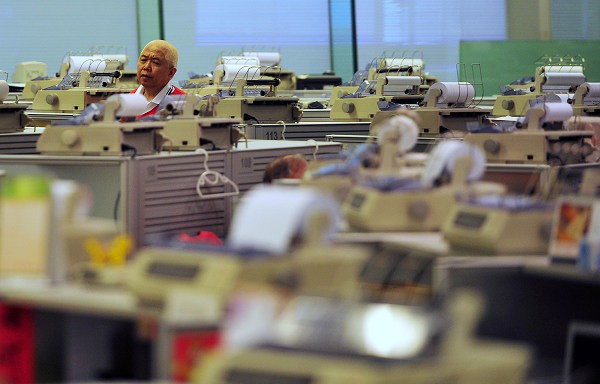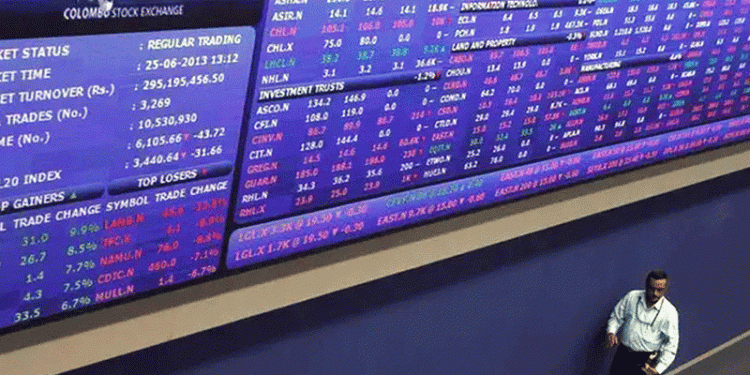Friday, 11 September 2015 10:38
 HONG KONG: Asian markets were relatively calm Friday at the end of a volatile week, with Shanghai and Hong Kong ticking higher after China unveiled a series of steps to shore up its economy, but fears of a US interest rate hike kept dealers on edge.
HONG KONG: Asian markets were relatively calm Friday at the end of a volatile week, with Shanghai and Hong Kong ticking higher after China unveiled a series of steps to shore up its economy, but fears of a US interest rate hike kept dealers on edge.
Higher-yielding, or riskier, currencies such as the Malaysian ringgit and South Korean won benefited from a more upbeat outlook, which followed a positive lead from Wall Street, while the Australian dollar edged higher.
The safe-haven yen, considered a go-to asset in times of turmoil, retreated.
Analysts said world markets seemed to be settling after a roller-coaster ride since China last month devalued its yuan currency, sparking concerns about the world’s number two economy — the main driver of global growth — and its leaders’ ability to control the crisis.
The broadly upbeat sentiment comes after Beijing sought to reassure investors it was able to maintain high growth, and announced a plan to speed up major construction projects and cut taxes for small and medium-sized enterprises.
A set of capital controls to prevent a flight of cash were implemented this week, while analysts said a rise in the offshore yuan Thursday suggested the central bank had intervened to prop it up.
Authorities also unveiled a series of measures to prevent huge swings in China’s stock markets, which have seen trillions of dollars wiped off valuations in Shanghai since it hit a peak in mid-June. Among the measures are a “circuit breaker” that stops shares being traded after rising or falling by a certain amount.
In early trade, Shanghai was up 0.29 percent, Hong Kong added 1.31 percent and Sydney was 0.37 percent higher. Tokyo pared most early losses to end the morning flat.
Juichi Wako, a senior strategist at Nomura Holdings, told Bloomberg News: “We seem to be forming a bottom, but uncertainty has yet to be completely dispelled, including what happens with US monetary policy.”
Global investors are nervously waiting for next week’s Federal Reserve policy meeting, with uncertainty over whether it will lift interest rates for the first time in nine years or hold fire owing to the recent market turmoil.
A hike in borrowing costs would likely hinder investment possibilities and also fan a flight of capital back to the United States in search of better returns, to the detriment of emerging markets.
Hopes that bank policymakers will opt not to raise rates supported US stocks, with Wall Street’s three main indexes all ending strongly higher.
A less volatile atmosphere saw low-risk assets retreat. The dollar bought 120.82 yen compared with 120.63 yen in New York, while the euro was at $ 1.1279 compared with $ 1.1275.
And the Australian dollar, which earlier in the week hit a six-year low below 69 US cents, was at 70.72 cents.
The ringgit was up 0.13 percent and the won gained 0.82 percent. New Zealand’s dollar, which tanked Thursday after the central bank cut interest rates, edged up 0.3 percent.



























